This piece first appeared in Rapid Growth as a guest blog on November 15, 2018
There are moments in your life when things happen and you always remem ber where you were and what you were doing. Some memorable events are bad, like the Challenger explosion, the World Trade Center attacks, or the death of Jerry Garcia. And then there are the good, memorable events. I’ll never forget when same-sex marriage was made legal. And most recently when cannabis legalization happened in Michigan with the voter approval of Proposition 1. My business partner and I launched our firm, Canna Communication, in the summer of 2017, knowing we’d be working in medical cannabis for a couple of years, but were focused on the passage of adult-use recreational legalization. I spent election night in Detroit watching voting returns in a Jefferson Avenue law office, consuming cannabis with a few dozen other activists until early in the morning when we were sure we’d won. I proudly wore the heady scent of marijuana the entire next day.
ber where you were and what you were doing. Some memorable events are bad, like the Challenger explosion, the World Trade Center attacks, or the death of Jerry Garcia. And then there are the good, memorable events. I’ll never forget when same-sex marriage was made legal. And most recently when cannabis legalization happened in Michigan with the voter approval of Proposition 1. My business partner and I launched our firm, Canna Communication, in the summer of 2017, knowing we’d be working in medical cannabis for a couple of years, but were focused on the passage of adult-use recreational legalization. I spent election night in Detroit watching voting returns in a Jefferson Avenue law office, consuming cannabis with a few dozen other activists until early in the morning when we were sure we’d won. I proudly wore the heady scent of marijuana the entire next day.
Sometime in early December — ten days after the election results are certified — Prop 1 will begin to be implemented. For those of you that were hoping to go out and buy cannabis in a shop, you’ll have to wait for at least a year; that’s how long the legislature has to review and adopt the law.
The good news is, if you already have cannabis on your person, you’re not a criminal anymore, and that’s the most critical aspect of the passage of this law.
If commerce and tax revenue are the brains of ending prohibition, then decriminalization is its heart.
With the new law, you can grow up to 12 plants on your property without having a caregiver license. You can possess up to 2.5 ounces on your person. You can have up to 10 ounces in your home. None of this is a crime anymore. If you are a non-medical, card-carrying marijuana consumer, you no longer need to worry about trouble with the police if you have cannabis and let’s say, you are stopping for speeding. As long as you are NOT under the influence or using as you’re driving, the small bag of marijuana in your purse or pocket is your own damn business.
For people of color, marijuana law has always been unfair. According to the ACLU, people of color are arrested at a rate 3.7 times greater than white people, though whites, African Americans, and Latinx people use cannabis at the same rate. The war on drugs that we all grew up with was an invention of President Richard Nixon, not based on facts, but on his personal whim. It’s come to light that he moved cannabis to schedule 1 status to repress young war protesters and black people.
Consider this quote from John Ehrlichman, Nixon’s domestic policy advisor speaking to reporter Dan Baum in Harper’s magazine, “The Nixon campaign in 1968, and the Nixon White House after that had two enemies: the antiwar left and black people. You understand what I’m saying? We knew we couldn’t make it illegal to be either against the war or black, but by getting the public to associate the hippies with marijuana and blacks with heroin, and then criminalizing both heavily, we could disrupt those communities. We could arrest their leaders, raid their homes, break up their meetings, and vilify them night after night on the evening news. Did we know we were lying about the drugs? Of course, we did.”
How about that 10-ounce possession cap that has taken a few people by surprise?
Cannabis flower is light in weight, and 10 ounces is a lot of product, more than 200 joints depending on how you roll. Critics of the law say that’s too much. But, consider this: there’s no limit to the amount of beer, liquor, or wine you can have in your home, right? If you want a wine cellar with 200 bottles, a well-stocked bar, or a keg of beer in your home, it’s your right as an adult to do that. We need to think about cannabis that way, too. Just because you have you ten ounces, doesn’t mean you’re just sitting around consuming it all at once. Marijuana keeps well in a cool, dark, dry place, just like wine.
Cannabis Legalization in Michigan = Economic Gains.
Cannabis legalization in Michigan brings opportunities for businesses and jobs here and not just selling the plant. Because public consumption (smoking or vaping) isn’t allowed — not on the street, in a place of business, or in your personal vehicle — there should be opportunities for people to create private or membership-style spaces for consumption.
Popular in already-legal states are bud and breakfast accommodations, outdoor patios where people can consume, places for puff n paint events, party buses where people can consume while taking tours of growing operations and provisioning centers. In Colorado, Amsterdam-style coffee shops are popping up. In Aspen, Colorado, cannabis sales outpaced alcohol in 2017. Much of the potential cannabis tourism will be dependent on how Michigan’s legislature digs into the specifics of the law.
Marijuana activists still have work to do post-Prop 1. People need to stay in contact with or begin conversations with elected officials about how the law will be implemented. It’s likely that the legislature will attempt to over-regulate cannabis where it is able to do so. On the local level, we need to watch our city, village, or township meeting agendas for opt-in discussions. Just over 100 municipalities in Michigan are open to medical marijuana businesses at present, and many municipalities were waiting to see if legalization passed. The marijuana opposition has stated that its next effort is to stop opt-ins in communities. If you want to see Prop 1 enacted in your community, you’ll continue to need to make your voice heard. We need to work together, too, for expungement of prior marijuana arrest records and for the release of those serving time for minor marijuana crimes.
By the time of the next election, we’ll have lived with recreational cannabis in Michigan for about a year. There will be some speed bumps and rough patches, I’m sure. But like the West and East coast states that have already blazed the trail, the sky will not fall and Michigan citizens will see the benefit of new businesses, jobs, and taxes, not to mention the easy pleasure of marijuana consumption.
 Here is an amazing and adaptable recipe for making cannabis brownies. It’s adaptable because if you don’t like dark chocolate or a spicy brownie you can remove the cayenne powder and substitute semi-sweet chocolate chips and instant coffee powder. But, trust me, the pop of spice really makes these great. It also tolerates a lot of stirring, which is good for getting the cannabis mixed throughout.
Here is an amazing and adaptable recipe for making cannabis brownies. It’s adaptable because if you don’t like dark chocolate or a spicy brownie you can remove the cayenne powder and substitute semi-sweet chocolate chips and instant coffee powder. But, trust me, the pop of spice really makes these great. It also tolerates a lot of stirring, which is good for getting the cannabis mixed throughout. make something that’s about 10 mg per bite, so with a 9×9 pan, you’ll want to cut something around 81 pieces, or 9 down and 9 across. Keep some in the fridge and freeze the rest.
make something that’s about 10 mg per bite, so with a 9×9 pan, you’ll want to cut something around 81 pieces, or 9 down and 9 across. Keep some in the fridge and freeze the rest.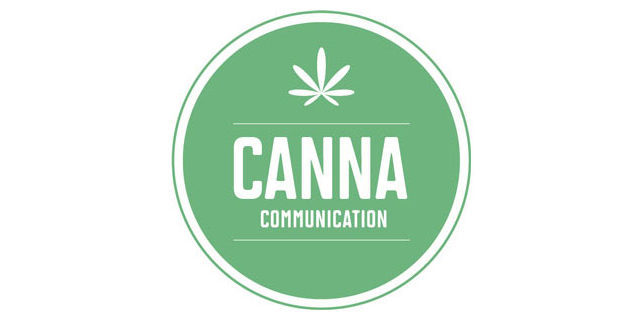


 It’s one thing to go state by state, or province by province, but for a whole country to end prohibition—that’s amazing. Canada is only the second nation in the world with legal cannabis. Keep in mind if you go travel to Canada bringing marijuana back to the US is highly illegal.
It’s one thing to go state by state, or province by province, but for a whole country to end prohibition—that’s amazing. Canada is only the second nation in the world with legal cannabis. Keep in mind if you go travel to Canada bringing marijuana back to the US is highly illegal. Finally, after almost seven decades of being illegal, hemp, the non-psychoactive brother to marijuana will be legal to grow and process across the US. This is excellent news for CBD-makers and farmers wanting to grow the plant for industrial purposes. It’s a versatile plant that can be used for paper, building houses and oil. The farm bill, which includes hemp was passed by the house and senate is now awaiting the President’s signature.
Finally, after almost seven decades of being illegal, hemp, the non-psychoactive brother to marijuana will be legal to grow and process across the US. This is excellent news for CBD-makers and farmers wanting to grow the plant for industrial purposes. It’s a versatile plant that can be used for paper, building houses and oil. The farm bill, which includes hemp was passed by the house and senate is now awaiting the President’s signature. A little more than a year after Californians voted to legalize cannabis, the state opened its markets to adult-use cannabis on January 1, 2018.
A little more than a year after Californians voted to legalize cannabis, the state opened its markets to adult-use cannabis on January 1, 2018. 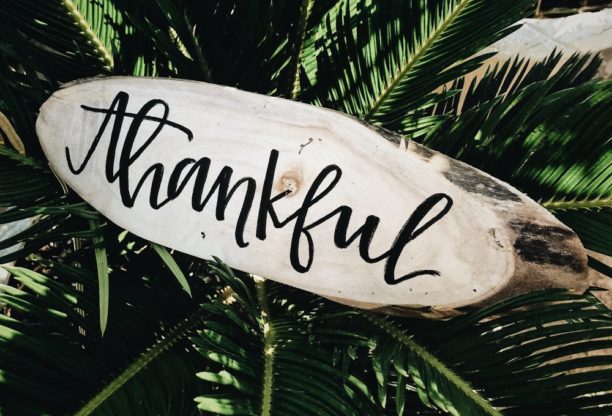
 ber where you were and what you were doing. Some memorable events are bad, like the Challenger explosion, the World Trade Center attacks, or the death of Jerry Garcia. And then there are the good, memorable events.
ber where you were and what you were doing. Some memorable events are bad, like the Challenger explosion, the World Trade Center attacks, or the death of Jerry Garcia. And then there are the good, memorable events.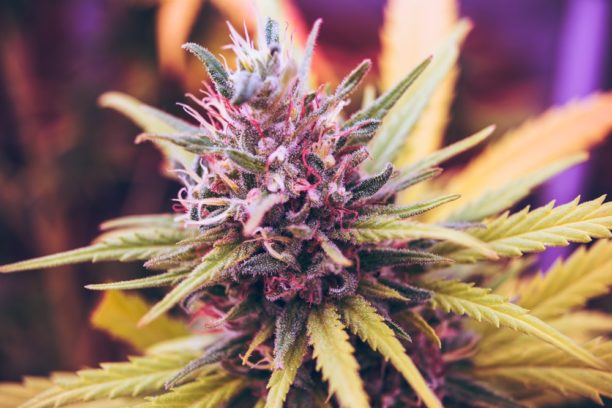
 Since communities can opt-in or out for medical marijuana, a similar policy applies to recreational marijuana legalization in Michigan. But communities will need to opt out. There won’t be provisioning centers in every community—only where zoning has been approved. We’ll probably see a bump in tourism—Michigan will be the first Midwestern state that is legal and there are lots of people who live close to Michigan. Expect that people will come for
Since communities can opt-in or out for medical marijuana, a similar policy applies to recreational marijuana legalization in Michigan. But communities will need to opt out. There won’t be provisioning centers in every community—only where zoning has been approved. We’ll probably see a bump in tourism—Michigan will be the first Midwestern state that is legal and there are lots of people who live close to Michigan. Expect that people will come for  kill you. There are no known cases of cannabis overdoses. Overusing it—usually happens when people overconsume edible cannabis. The effect of edibles is slow to be felt and people tend to take a few extra bites and then, BOOM, an uncomfortable feeling comes on. But it won’t kill you. You might think you are dying, but you won’t be.
kill you. There are no known cases of cannabis overdoses. Overusing it—usually happens when people overconsume edible cannabis. The effect of edibles is slow to be felt and people tend to take a few extra bites and then, BOOM, an uncomfortable feeling comes on. But it won’t kill you. You might think you are dying, but you won’t be.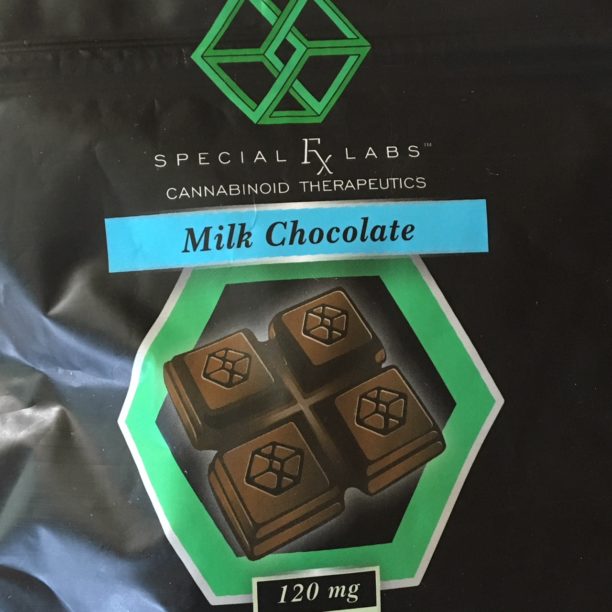


 Cannabis edibles are an upscale product, they’re not inexpensive to purchase and the packaging should reflect the quality of the product contained inside. That’s not to say it has to be expensive or over-packaged, but it does need to be thoughtful in its presentation. People make decisions in a provisioning center based on several factors including price, a word of mouth recommendation, advice from the budtender behind the counter and the appearance of a package.
Cannabis edibles are an upscale product, they’re not inexpensive to purchase and the packaging should reflect the quality of the product contained inside. That’s not to say it has to be expensive or over-packaged, but it does need to be thoughtful in its presentation. People make decisions in a provisioning center based on several factors including price, a word of mouth recommendation, advice from the budtender behind the counter and the appearance of a package.  Today, brands across every sector are facing an increasingly competitive landscape and an increasingly sophisticated consumer. People tend to disregard mass brand communications in favor of more personalized messaging mediums. Packaging has the
Today, brands across every sector are facing an increasingly competitive landscape and an increasingly sophisticated consumer. People tend to disregard mass brand communications in favor of more personalized messaging mediums. Packaging has the  An experienced designer can look at the product and create packaging that is sophisticated, appealing and true to the product inside. There’s really no reason that cartoons, colors and childish fonts need to be used in cannabis products.
An experienced designer can look at the product and create packaging that is sophisticated, appealing and true to the product inside. There’s really no reason that cartoons, colors and childish fonts need to be used in cannabis products. 
 Eric has been working with investors and startups outside of cannabis for a decade at the Michigan SBDC and since leaving the SBDC has been helping bridge the funding gap in the cannabis space. His company, Left Coast Capital works with investors looking for solid businesses, in cannabis and other businesses as well.
Eric has been working with investors and startups outside of cannabis for a decade at the Michigan SBDC and since leaving the SBDC has been helping bridge the funding gap in the cannabis space. His company, Left Coast Capital works with investors looking for solid businesses, in cannabis and other businesses as well.  8) You must be able to talk about how you’re going to handle cash and mitigate the risk involved with it. “Investors want to know that their investment won’t be lost at gunpoint. Know what you’re doing to handle cash and security.”
8) You must be able to talk about how you’re going to handle cash and mitigate the risk involved with it. “Investors want to know that their investment won’t be lost at gunpoint. Know what you’re doing to handle cash and security.”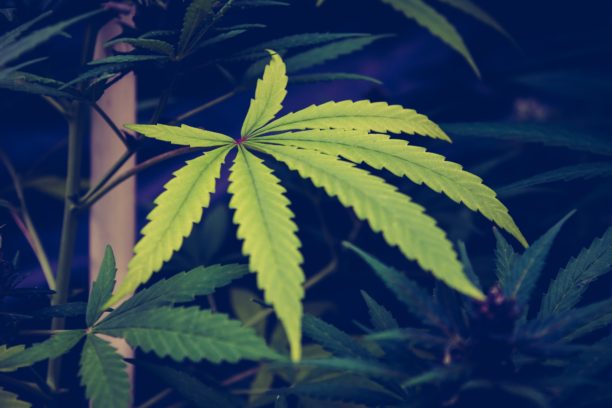
 We have public opinion on our side. From big national surveys like
We have public opinion on our side. From big national surveys like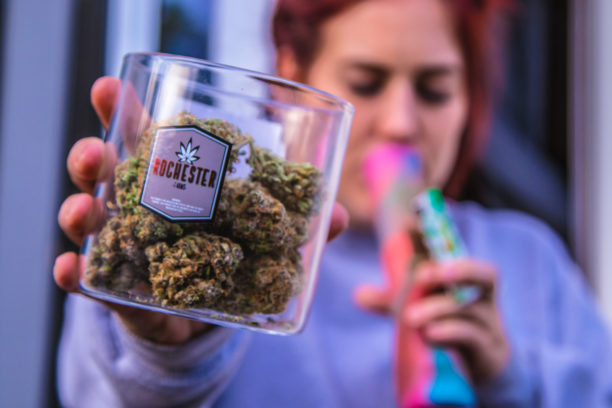

 Other films, including our inspiration for this blog title
Other films, including our inspiration for this blog title 


 “With the largest U.S. state now legal, Americans will see cannabis more normalized, and visitors to the Golden State returning home will wonder why they are second-class citizens when it comes to personal liberty and cannabis policy common sense,” Hank said.
“With the largest U.S. state now legal, Americans will see cannabis more normalized, and visitors to the Golden State returning home will wonder why they are second-class citizens when it comes to personal liberty and cannabis policy common sense,” Hank said.